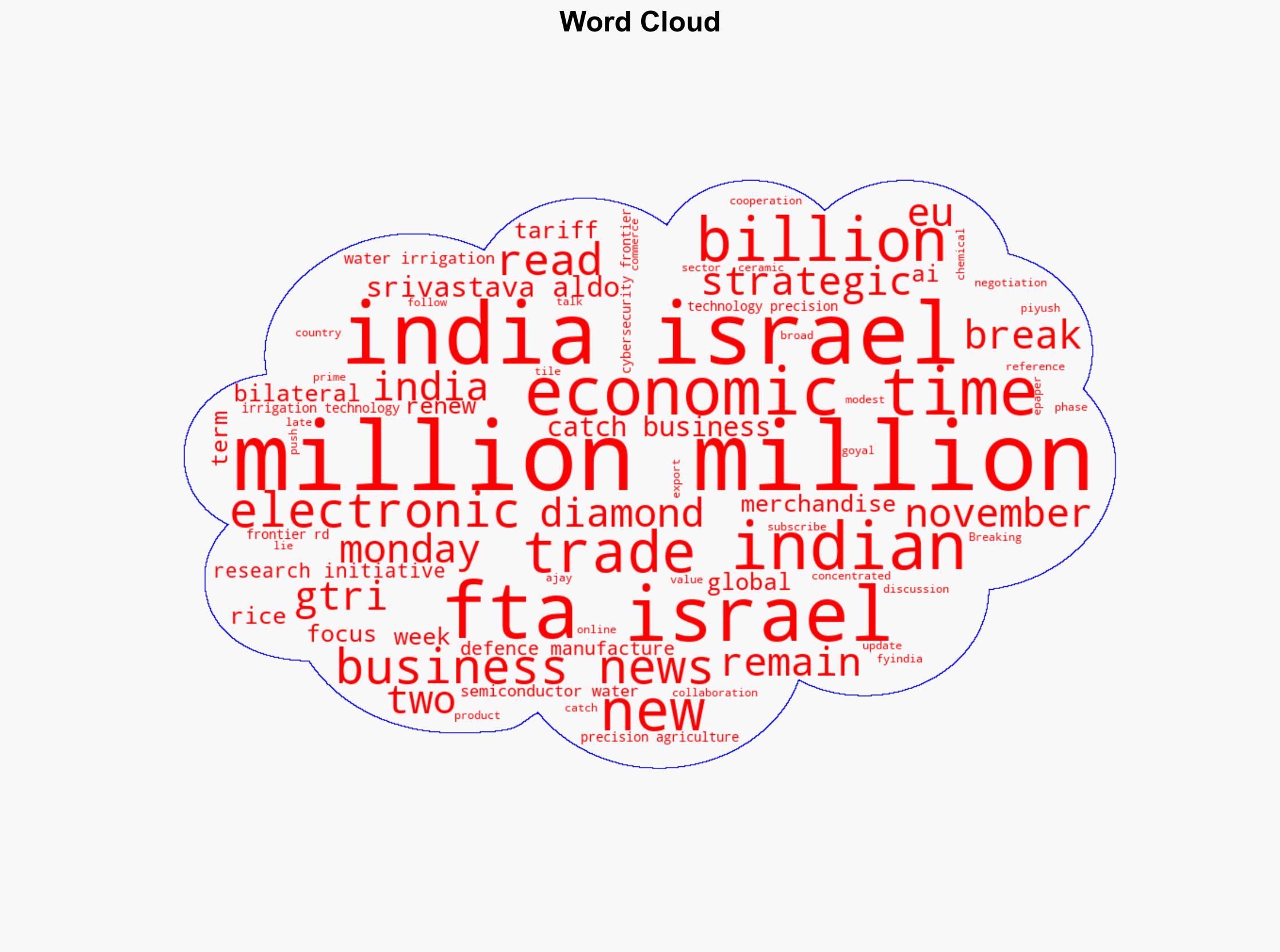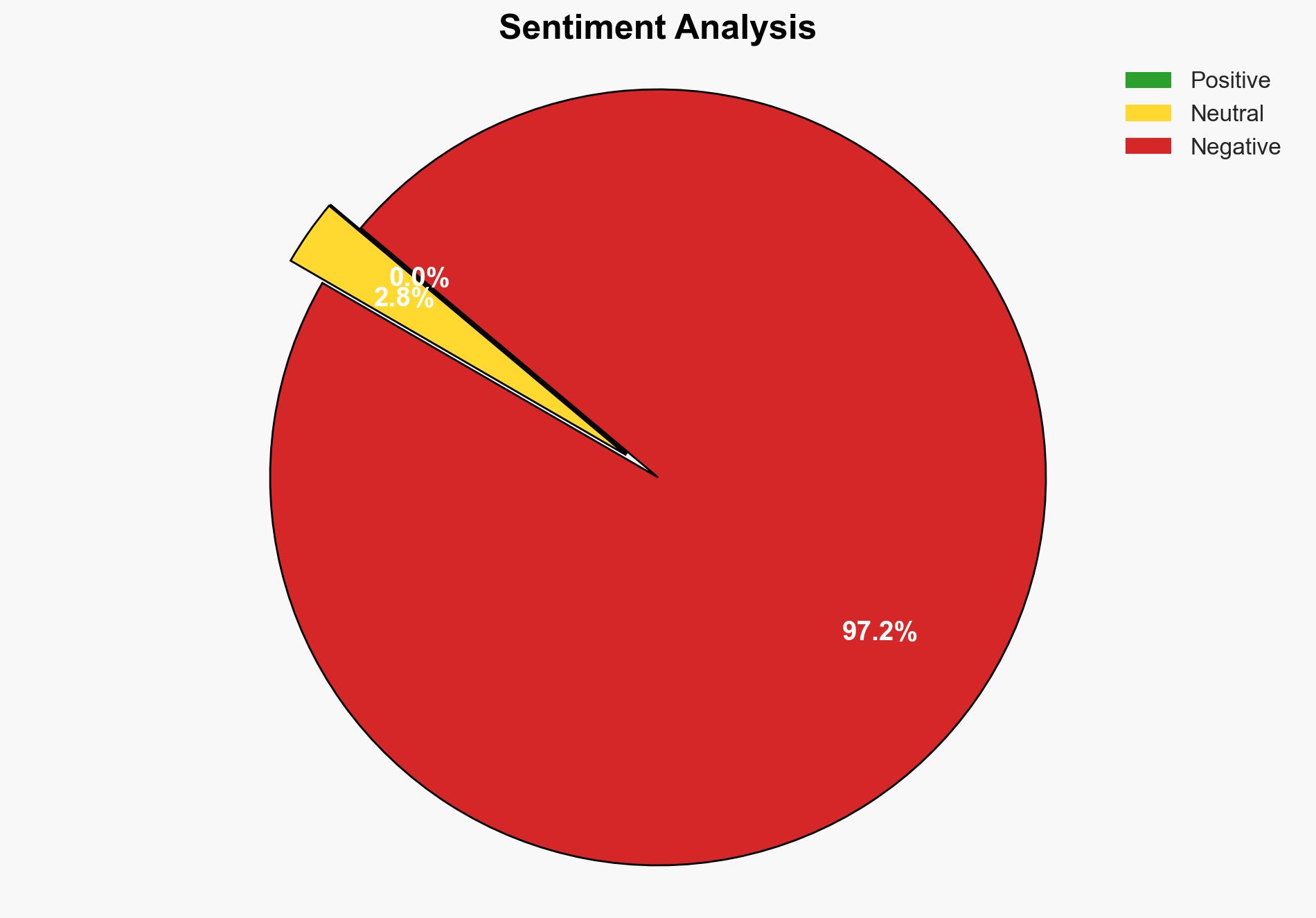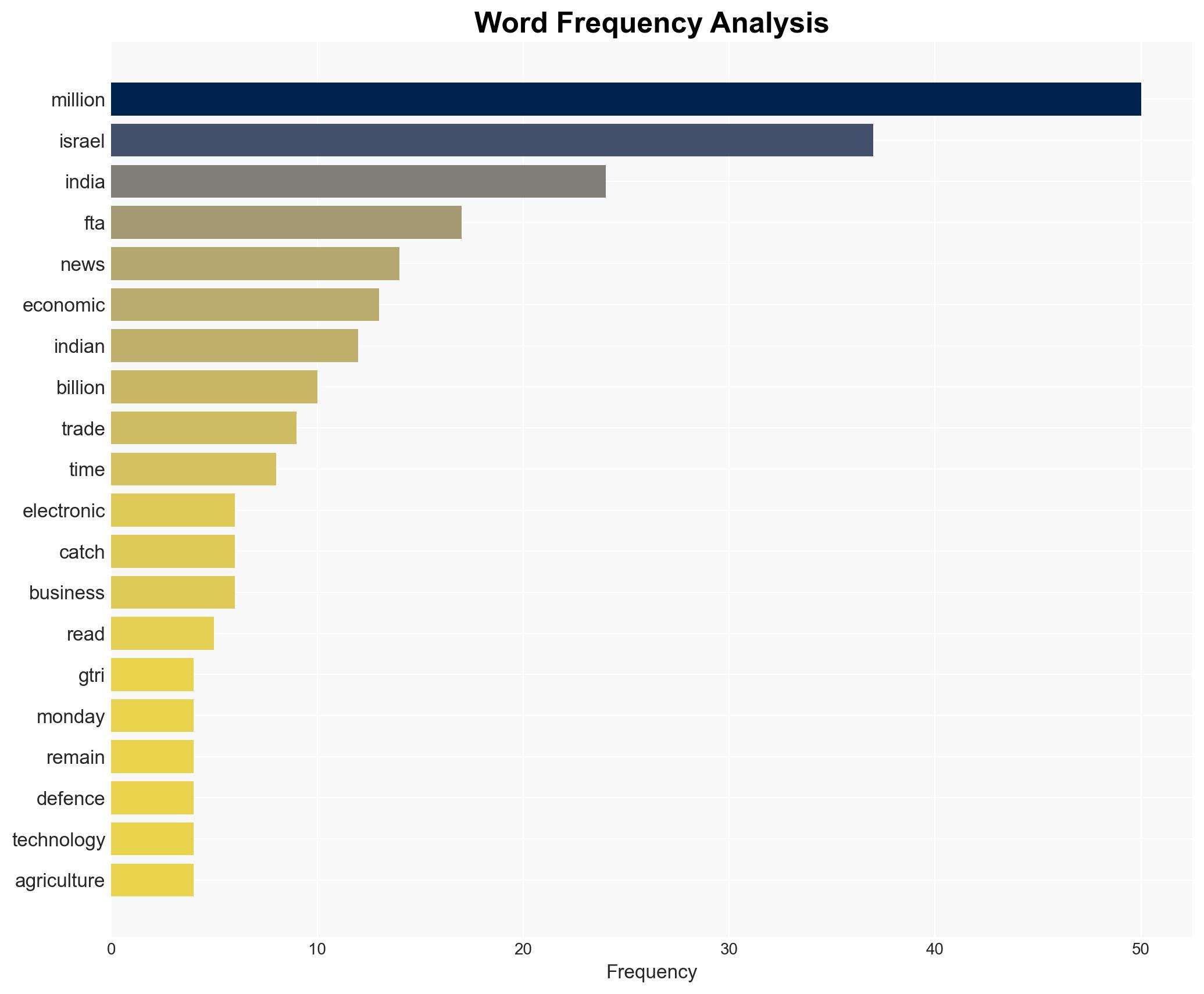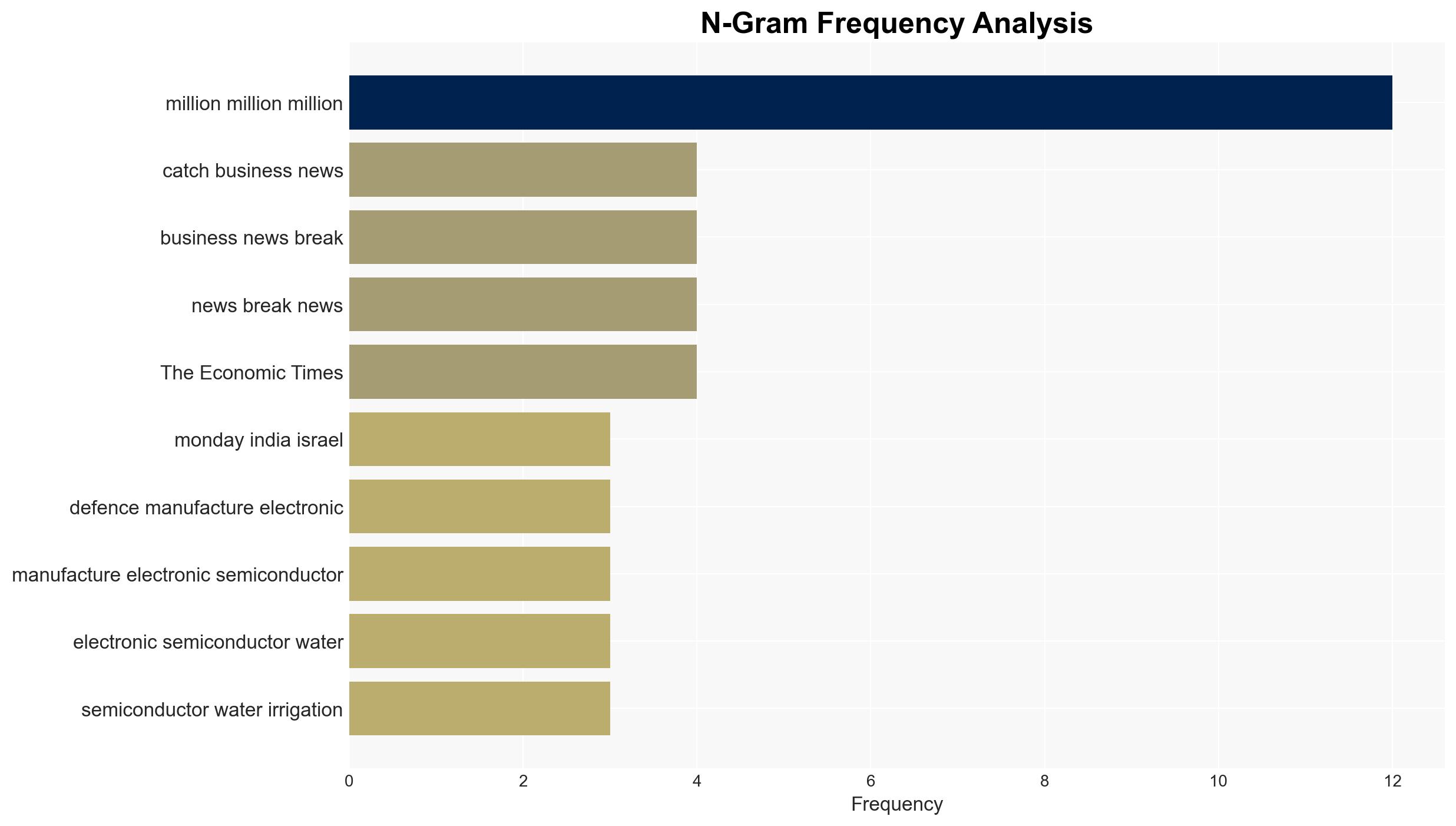India-Israel FTA talks Strategic sectors must take centre stage over merchandise trade says GTRI
Published on: 2025-11-24
AI-powered OSINT brief from verified open sources. Automated NLP signal extraction with human verification. See our Methodology and Why WorldWideWatchers.
Intelligence Report: Strategic Analysis of India-Israel FTA Talks
1. BLUF (Bottom Line Up Front)
The strategic judgment is that the renewed India-Israel FTA talks will likely prioritize strategic sectors over merchandise trade, enhancing bilateral cooperation in defense, technology, and cybersecurity. This is supported by the Global Trade Research Initiative’s (GTRI) emphasis on these areas. Confidence level: Moderate. Recommended action: Encourage focused negotiations on strategic sectors to leverage complementary strengths and mitigate merchandise trade limitations.
2. Competing Hypotheses
Hypothesis 1: The India-Israel FTA will primarily focus on strategic sectors such as defense, technology, and cybersecurity, leading to enhanced bilateral cooperation and innovation.
Hypothesis 2: The FTA will continue to emphasize merchandise trade, with limited expansion into strategic sectors, resulting in modest economic gains.
Assessment: Hypothesis 1 is more likely due to the GTRI’s analysis and the historical context of stalled negotiations over tariff disagreements. The strategic sectors offer greater potential for mutual benefits, aligning with both countries’ economic and security priorities.
3. Key Assumptions and Red Flags
Assumptions: Both countries are willing to prioritize strategic cooperation over traditional trade barriers. The geopolitical climate remains stable, allowing for focused negotiations.
Red Flags: Potential deception if either party uses strategic sector negotiations as leverage for unrelated political or economic concessions. Historical disagreements on tariffs may resurface, stalling progress.
4. Implications and Strategic Risks
The focus on strategic sectors could strengthen bilateral ties and position both nations as leaders in defense and technology innovation. However, failure to address merchandise trade barriers may limit overall economic impact. Escalation scenarios include political tensions if negotiations stall or if external geopolitical factors influence talks.
5. Recommendations and Outlook
- Actionable steps: Establish clear objectives for strategic sector cooperation, create joint task forces for technology and defense, and develop a phased approach to address merchandise trade barriers.
- Best-case scenario: Successful FTA focusing on strategic sectors, leading to significant technological and defense advancements.
- Worst-case scenario: Stalled negotiations due to unresolved tariff issues, resulting in minimal progress.
- Most-likely scenario: Incremental progress in strategic sectors with ongoing challenges in merchandise trade.
6. Key Individuals and Entities
Ajay Srivastava (GTRI Founder), Piyush Goyal (India’s Commerce Minister)
7. Thematic Tags
Cybersecurity, Defense Cooperation, Technology Transfer, Bilateral Trade
Structured Analytic Techniques Applied
- Adversarial Threat Simulation: Model and simulate actions of cyber adversaries to anticipate vulnerabilities and improve resilience.
- Indicators Development: Detect and monitor behavioral or technical anomalies across systems for early threat detection.
- Bayesian Scenario Modeling: Quantify uncertainty and predict cyberattack pathways using probabilistic inference.
Explore more:
Cybersecurity Briefs ·
Daily Summary ·
Support us





